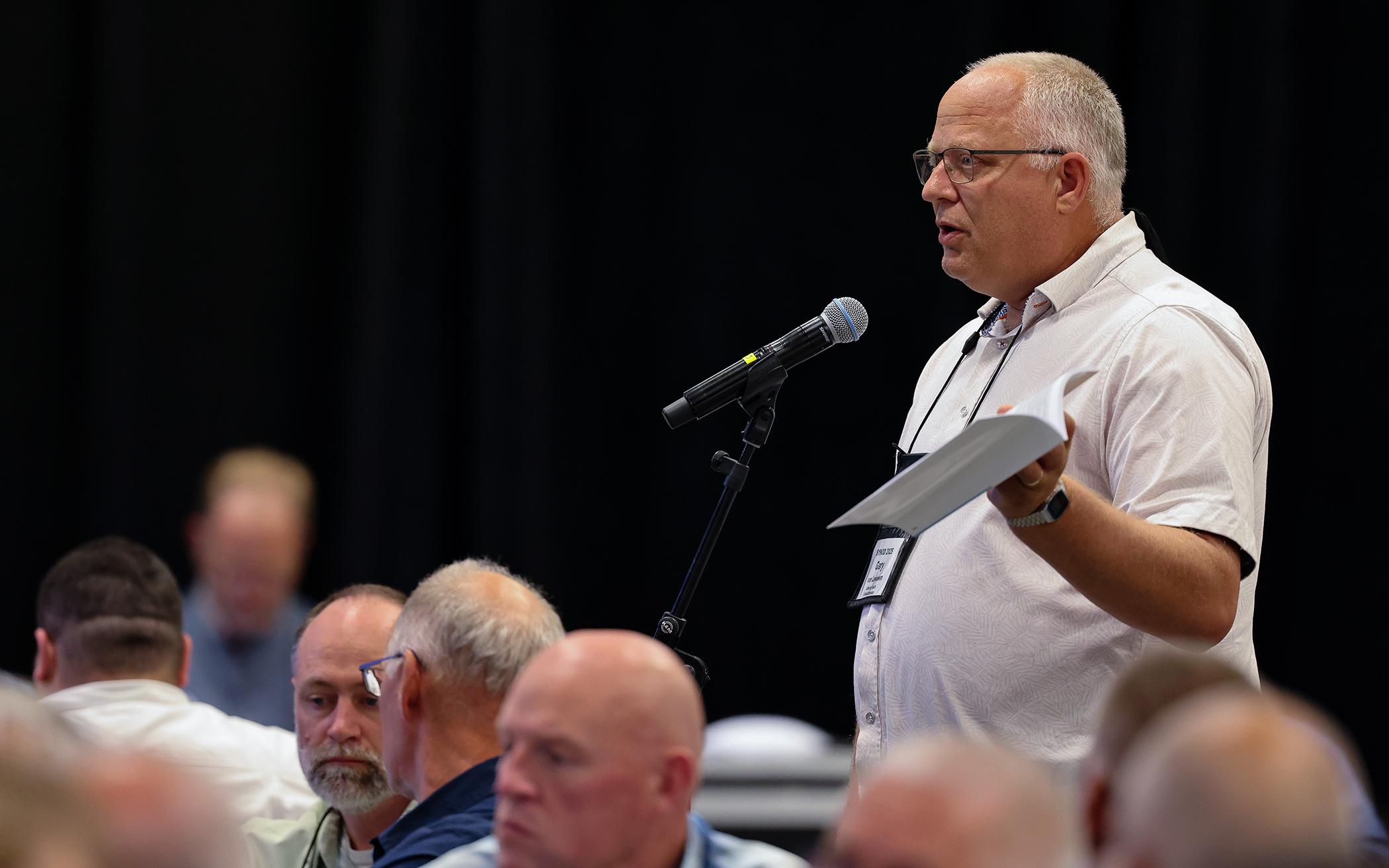Synod wants to know more about board member nominees that it has to vote on. It tasked the general secretary with acquiring from the various boards rubrics that would list the gifts and qualifications expected of board and committee nominees and to provide information addressing those criteria to the voting delegates.
Synod is the annual general assembly of the Christian Reformed Church in North America. It is meeting June 13-19 in Ancaster, Ont.
Synod is asked to vote each year, by way of an extensive ballot, to confirm members appointed to board positions. There was some concern that without details the practice was not much more than a “rubber stamp.”
Synod 2025 said the rubrics should include “relevant education and professional experience; spiritual maturity and moral integrity; and a stated commitment to Jesus Christ and to the confessional standards of the CRCNA.”
Synod also asked the Office of General Secretary to make the rubrics public, available through the Christian Reformed Church of North America websites or published synodical materials.
Chris Ganski, Classis Wisconsin, who reported for the committee that made the recommendation, said, “If they (the rubrics) were public at synod then synod would have access to them and see them.”
Synod made the changes in response to a request from Classis Zeeland wanting more involvement over the confirmation of board members for CRCNA-related institutions. The motivating concern is “the importance of maintaining theological, ethical, and professional alignment among nominees to synodically appointed boards, committees, and agencies.”
Tyler Wagenmaker, Classis Zeeland, wanted to include the Council of Delegates in the process as well as the Office of General Secretary. A few delegates spoke in favor of that, but synod chose not to do that.
Ben Wimmers, Classis B.C. South-East, spoke against adding this work and preferred to trust the system synod has already built.
Gary van Leeuwen, Classis Alberta South/Saskatchewan, said, “We’re not trying to add on another level of bureaucracy; we are trying to make things more transparent.”
Synod did not give a timeline for this to be completed by the Office of General Secretary. The boards and committees with synodical appointments include the Council of Delegates, the Calvin Theological Seminary Board of Trustees, Calvin University Board of Trustees, Candidacy Committee, Christian Reformed Church Loan Fund, Historical Committee, Judicial Code Committee, and Ministers’ Pension Funds committee.
Synod 2025, the annual general assembly of the Christian Reformed Church in North America, is meeting June 13-19 on the campus of Redeemer University in Ancaster, Ont. Find daily coverage from The Banner at TheBanner.org/synod. Visit crcna.org/synod for the agenda, advisory reports, recordings of plenary sessions, and to subscribe to the daily Synod News email.
About the Author
Isabelle Brown is a writer from Brampton, Ontario and a student at Redeemer University, where she is a reporter for The Crown. Her non-writing interests include painting and sketching.









